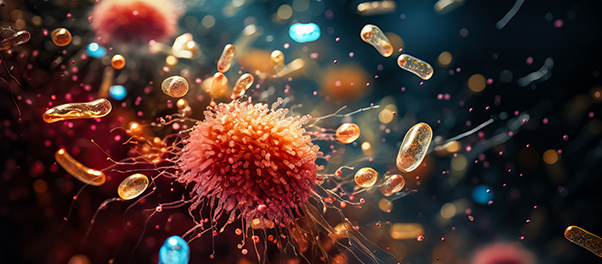- The Intricate Connections Between Our Gut Microbiota, Gut Health, and Brain Function
- The Microbiota-Gut-Brain Axis and Mood
- Interventions Targeting Biopsychosocial Factors
- Physical Exercise: A Boost for Gut Health and Mood
- Diet: Nourishing the Gut and the Mind
- Social Activities: Building Emotional Resilience
- Monitoring Health Risk Factors: A Preventative Approach
- Criminal Justice and the Microbiota-Gut-Brain Axis
- Conclusion
- Additional Resources
The Intricate Connections Between Our Gut Microbiota, Gut Health, and Brain Function
The microbiota-gut-brain axis is a complex and intricate communication system that involves the interactions between the trillions of microorganisms living in our digestive system (known as the gut microbiota), the gut itself, and the brain. This bidirectional communication network plays a crucial role in influencing various aspects of our health, including mood, emotions, and cognitive functions.
While our understanding of this axis is still evolving, research suggests that maintaining a healthy gut microbiota through proper diet, lifestyle, and probiotics could positively influence mental well-being and cognitive health.
Gut Microbiota: The gut is home to an incredibly diverse community of microorganisms, including bacteria, viruses, fungi, and more. Collectively, these microorganisms are referred to as the gut microbiota. They are vital in digestion, nutrient absorption, and immune system regulation.
Microbial Metabolites: As the gut microbiota digest dietary components and produce metabolites, they release various molecules into the gut environment. These metabolites include short-chain fatty acids, neurotransmitters, and other bioactive compounds.
Communication Pathways: The gut communicates with the brain through several pathways:
- Nervous System: The gut and the brain are connected by the enteric nervous system (the "second brain") and the vagus nerve. These pathways enable bidirectional communication, allowing signals to travel from the gut to the brain and vice versa.
- Neurotransmitters: The gut microbiota can produce neurotransmitters, such as serotonin, dopamine, and GABA, also present in the brain. These neurotransmitters influence mood, emotions, and cognitive functions.
- Immune System: The gut is closely linked to the immune system. An imbalance in the gut microbiota (dysbiosis) can trigger immune responses that impact brain function and contribute to conditions like inflammation and neurodegeneration.
Impact on Mood and Emotions: The gut microbiota can influence the production of neurotransmitters like serotonin, often called the "feel-good" neurotransmitter. Serotonin plays a crucial role in regulating mood, sleep, and appetite. Imbalances in gut microbiota have been linked to depression and anxiety.
Impact on Cognitive Functions: The gut microbiota can influence cognitive functions through various mechanisms. For example, microbial metabolites can affect the blood-brain barrier, which separates the brain from the circulatory system, influencing brain health. Inflammation triggered by dysbiosis can also impact cognitive processes.
Stress Response: The gut-brain axis is closely linked to the body's stress response. Stress can influence the gut microbiota composition, affecting stress-related hormones and neurotransmitters. This bidirectional relationship can lead to a cycle of stress and gut-related issues.
The Microbiota-Gut-Brain Axis and Mood
The microbiota-gut-brain axis is the intricate bidirectional communication between the gut microbiota and the central nervous system. The gut microbiota comprises diverse microorganisms, including bacteria, viruses, and fungi, that reside in the gastrointestinal tract. These microbes play a crucial role in breaking down food, producing essential nutrients, and maintaining the integrity of the gut barrier.
Research has shown that the gut microbiota communicates with the brain through neural, endocrine, and immune pathways. This communication involves the production of neurotransmitters and neuroactive compounds that can influence mood, emotions, and cognitive functions. The balance of the gut microbiota has been linked to conditions such as anxiety, depression, and stress, highlighting the importance of maintaining a healthy microbiome for overall well-being.
Interventions Targeting Biopsychosocial Factors
Cognitive Training: Engaging the Brain for Resilience
Cognitive training involves various exercises and activities challenging the brain's cognitive abilities. These exercises engage different cognitive skills, offering a multifaceted mental stimulation and improvement approach.
- Memory games, brain teasers, and attention-training tasks challenge memory, problem-solving, and focus.
- Online platforms like Lumosity provide tailored games for different cognitive areas, while exercises like dual N-back training and working memory tasks enhance memory and information manipulation.
- Language exercises, executive function training, and spatial reasoning games target vocabulary, planning, and spatial awareness.
- Activities like music-based training and speed training offer unique avenues for cognitive enhancement.
It's essential to recognize that the effectiveness of mental training can vary, influenced by factors like practice frequency, targeted skills, and individual variability.
Stimulating neural pathways can enhance cognitive function, memory, and attention. Cognitive training may positively impact the microbiota-gut-brain axis by promoting a healthier gut environment and reducing stress-related hormones. Regular cognitive exercises are a promising intervention for improving mood and mental resilience.
Physical Exercise: A Boost for Gut Health and Mood
Diet: Nourishing the Gut and the Mind
Social Activities: Building Emotional Resilience
Monitoring Health Risk Factors: A Preventative Approach
Criminal Justice and the Microbiota-Gut-Brain Axis
The microbiota-gut-brain axis has gained attention in mental health, well-being, and criminal justice. Understanding the implications of this axis for individuals within the criminal justice system can shed light on potential avenues for prevention, rehabilitation, and overall improvement in the well-being of those involved.
- Impact on Criminal Behavior: Research has suggested that the gut microbiota can influence behavior and decision-making. Imbalances in the gut microbiota have been associated with impulsivity and altered cognitive functions, which can affect criminal behavior. By addressing gut health and promoting a balanced microbiota, interventions may help reduce impulsive and risky behaviors.
- Mood Disorders and Criminality: Mood disorders, such as depression and anxiety, are prevalent among individuals in the criminal justice system. As the microbiota-gut-brain axis plays a role in mood regulation, exploring interventions that target gut health and microbial balance may offer complementary approaches to conventional treatments for mood disorders among offenders.
- Stress Management: The stress response is closely linked to the microbiota-gut-brain axis. Criminal justice involvement often leads to high stress levels for individuals, exacerbating gut microbiota imbalances and leading to a cycle of poor mental health.
- Nutrition and Rehabilitation: Prisons and correctional facilities can play a role in shaping the diets of incarcerated individuals. Providing nutritious meals that support gut health and cognitive function may improve overall well-being and contribute to rehabilitation efforts.
- Reentry Programs: For individuals transitioning back into society after incarceration, the microbiota-gut-brain axis can continue influencing their mental health and reintegration into the community. Reentry programs that emphasize diet, stress management, and mental health support can aid in successfully reintegrating individuals and reduce the risk of reoffending.
Conclusion
In conclusion, the microbiota-gut-brain axis represents a fascinating and intricate connection between our gut, brain, and overall well-being. Understanding and harnessing the power of this axis can open up new possibilities for interventions to improve mood and mental health. From cognitive training and physical exercise to a balanced diet, meaningful social activities, and proactive health monitoring, a holistic approach that targets biopsychosocial factors can positively influence the microbiota-gut-brain axis and contribute to a happier, healthier, and more resilient mind. Embracing these interventions can empower individuals to take charge of their mental well-being and lead fulfilling lives.
Furthermore, the microbiota-gut-brain axis has far-reaching implications, including within the criminal justice system. By acknowledging and addressing the influence of gut health on behavior, mood, and overall well-being, criminal justice professionals and policymakers can explore innovative approaches to improve the lives of those involved in the system and enhance public safety. Embracing a comprehensive understanding of the microbiota-gut-brain axis can contribute to more effective and humane criminal justice practices, ultimately fostering healthier and more resilient communities.






















